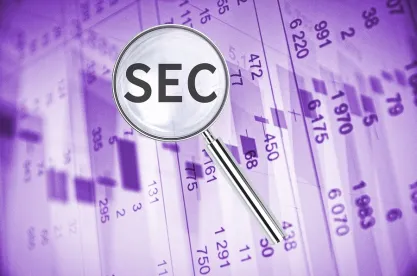On March 12, 2020, the U.S. Securities and Exchange Commission (the “SEC”) adopted amendments to the definition of “accelerated filer” and “large accelerated filer” definitions in Exchange Act Rule 12b-2, which amendments will be effective 30 days after publication in the Federal Register and will apply to annual report filings due on or after such effective date.
Currently, under Rule 12b-2 an accelerated filer transitions to a non-accelerated filer once its public float falls below $50 million as of the last business day of its most recently completed second fiscal quarter, and a large accelerated filer transitions to an accelerated filer or non-accelerated filer once its public float falls below $500 million as of the last business day of its most recently completed second fiscal quarter.
Under the amended definition, an accelerated filer will transition to a non-accelerated filer once its public float falls below $60 million, and a large accelerated filer will transition to either an accelerated filer or a non-accelerated filer once its public float falls below $560 million.
The amendments to the definitions of “accelerated filer” and “large accelerated filer” exclude issuers that are eligible to be a smaller reporting company under the smaller reporting company test and had annual revenues of less than $100 million in the most recent fiscal year for which audited financial statements are available.
Although the JOBS Act provides an exemption from the requirement of SOX Section 404(b) that an issuer’s independent auditor report on management’s assessment of the effectiveness of the issuer’s internal control over financial reporting (“ICFR”) for emerging growth companies (“EGCs”), it did not provide an exemption for smaller reporting companies that no longer qualified as an EGC; however, as a result of the foregoing amendments to the definitions set forth in Rule 12b-2, issuers that qualify as a smaller reporting company and a non-accelerated filer will no longer be required to obtain an attestation of their ICFR from an outside auditor. Notwithstanding the foregoing, such issuers will continue to be required to establish and maintain effective ICFR and will continue to be subject to a financial statement audit by an independent auditor who is required to consider ICFR in performing such audit.




 />i
/>i
